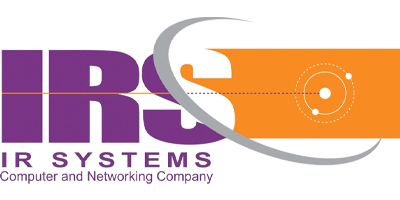Best SAN Storage Solutions in Pakistan | Trusted Distributors
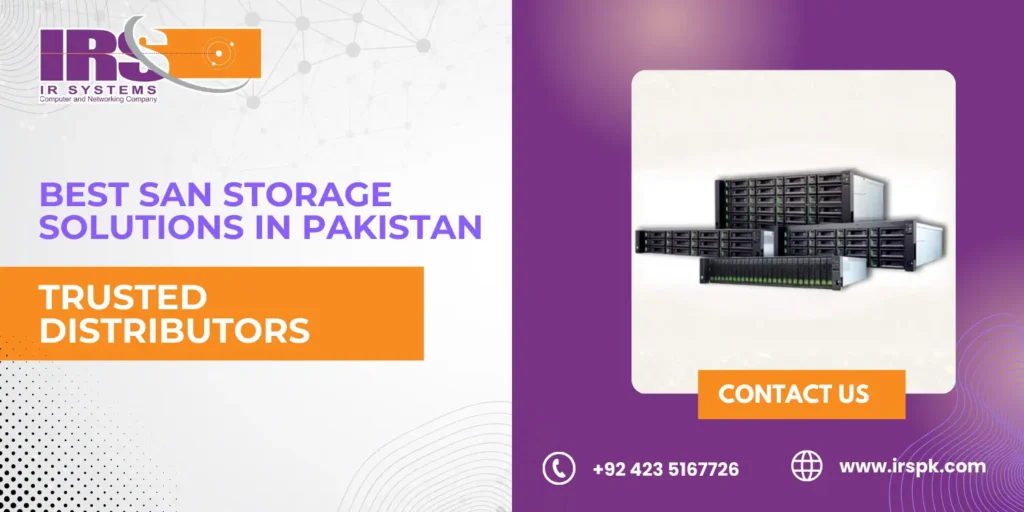
In today’s fast-paced digital world, data is the heart of every business operation – from financial records and customer data to multimedia files and cloud-based applications. Managing, securing, and scaling this data efficiently is crucial for business success. That’s where SAN storage solutions in Pakistan come into play. A Storage Area Network (SAN) is a high-speed, high-availability storage architecture that allows organizations to consolidate data, improve performance, and ensure uninterrupted access to mission-critical applications. At IR Systems, we specialize in providing the best SAN storage solutions in Pakistan, helping businesses streamline data storage, boost efficiency, and prepare for a data-driven future. In this blog, we’ll explore what SAN storage is, why it’s essential, its benefits, and why IR Systems is among the most trusted SAN storage distributors in Pakistan for modern businesses. What is SAN Storage and Why Does It Matter? SAN (Storage Area Network) is a specialized network that connects storage devices (like disk arrays and tape libraries) to servers, making the storage appear as if it’s locally attached to the operating system. This system offers high-speed connectivity, reliability, and scalability – making it ideal for enterprises that deal with large volumes of data or require continuous access to storage. Unlike traditional storage solutions, SAN separates storage from general network traffic, ensuring superior performance and lower latency. Whether you run an enterprise data center, a government institution, or a growing IT company, SAN storage helps maintain fast and reliable access to your business data 24/7. At IR Systems, we understand that every business’s data infrastructure is unique. That’s why we offer tailored SAN storage solutions in Pakistan that match your performance requirements, budget, and long-term IT goals. Key Benefits of SAN Storage Solutions in Pakistan Choosing SAN storage is not just about storage capacity – it’s about efficiency, speed, and business continuity. Here are some of the most impactful benefits businesses in Pakistan can gain from implementing SAN storage: 1. High-Availability Storage Downtime can cripple a business. SAN systems are built with redundancy and failover mechanisms, ensuring continuous data access even during hardware failures. This high-availability storage design minimizes downtime and keeps your business running smoothly – a must for industries like banking, healthcare, and telecom. 2. Unmatched Speed and Performance With dedicated data transfer channels, SAN storage ensures faster input/output operations compared to traditional NAS or DAS systems. This makes it ideal for demanding applications such as databases, virtualization, and large-scale enterprise software. 3. Scalability and Flexibility As your business grows, so does your data. SAN storage solutions make it easy to expand capacity without disrupting ongoing operations. Whether you need to add more drives or integrate newer storage technologies, SAN offers seamless scalability. 4. Centralized Data Management A SAN solution centralizes your storage infrastructure, simplifying management, monitoring, and backup processes. With IR Systems’ SAN solutions, businesses can easily manage multiple storage systems through a unified dashboard, saving time and reducing administrative complexity. 5. Enhanced Data Protection Data loss can be catastrophic. SAN storage solutions in Pakistan offered by IR Systems include integrated data protection tools like snapshots, replication, and free backup software to ensure that your critical information remains safe and recoverable. 6. Improved Resource Utilization By pooling storage resources across multiple servers, SAN helps optimize usage and reduce waste. This not only enhances performance but also reduces overall infrastructure costs over time. Why Businesses in Pakistan Are Adopting SAN Storage Over the past few years, the demand for enterprise-grade storage solutions has increased significantly across Pakistan. Industries like banking, education, healthcare, and telecommunications now rely heavily on SAN storage to maintain operational efficiency and data security. In a country where digital transformation is accelerating, SAN storage solutions in Pakistan empower businesses to: Support data-heavy applications such as ERP, CRM, and AI workloads. Ensure smooth performance of virtualization and cloud environments. Meet compliance standards for data protection and business continuity. Reduce latency and improve collaboration across departments. Whether it’s all-flash SAN in Pakistan for ultra-fast data access or hybrid systems balancing performance and cost, IR Systems offers tailored solutions that drive reliability and growth. IR Systems – Your Trusted SAN Storage Distributor in Pakistan When it comes to trusted SAN storage distributors in Pakistan, IR Systems stands out as a pioneer in delivering high-quality, enterprise-grade storage infrastructure. Here’s why organizations across Pakistan choose IR Systems as their SAN partner: 1. End-to-End SAN Expertise From consultation and system design to implementation and post-deployment support, our team ensures your SAN setup delivers maximum value and uptime. 2. Partnerships with Leading SAN Companies We collaborate with top SAN companies in Pakistan and global brands, providing you access to world-class technologies that fit your unique business environment. 3. Custom-Tailored Storage Solutions At IR Systems, we believe every organization has different storage needs. That’s why we design customized SAN storage solutions – whether you need high-availability storage, all-flash SAN, or hybrid configurations. 4. Reliable Technical Support Our certified engineers and support specialists are always ready to help you troubleshoot, optimize, and maintain your storage systems, ensuring seamless operations around the clock. 5. Competitive Pricing We provide enterprise-level SAN storage at competitive prices, making advanced technology accessible for both large corporations and mid-sized businesses in Pakistan. All-Flash SAN in Pakistan: The Future of Enterprise Storage The rise of all-flash SAN in Pakistan marks a major leap in data storage evolution. Unlike traditional hard-disk-based systems, all-flash arrays use SSDs, offering lightning-fast speeds, lower latency, and improved energy efficiency. At IR Systems, we help businesses transition to all-flash SAN storage – ideal for mission-critical applications, analytics, and virtualization workloads. These systems deliver exceptional performance and durability, ensuring your business remains ahead of the competition. Free Backup Software and Data Protection As part of our commitment to reliable data management, IR Systems integrates free backup software with many of our SAN deployments. This ensures your data is always backed up, recoverable, and protected against cyber threats, hardware failures, or accidental deletions. Our backup solutions are simple to use, fully automated, and compatible with all major
How to Use vCloudPoint Devices for Home Cloud?

In today’s digital age, managing files, media, and personal data across multiple devices has become a necessity. Whether you’re working remotely, studying, or simply storing family photos, a home cloud server gives you centralized storage, easy access, and security. But setting up and managing your private cloud doesn’t have to be expensive or complicated. That’s where vCloudPoint devices – such as the vCloudPoint S100V1 and vCloudPoint S100A1 – come in. In this blog, we’ll explore how you can use vCloudPoint devices for home cloud, their benefits, and why they’re becoming a preferred solution in Pakistan. We’ll also show you how IR Systems, an official vCloudPoint importer in Pakistan, can help you get started with your own private my cloud setup. What is vCloudPoint? vCloudPoint is a trusted name in zero client technology. Instead of buying multiple PCs for every family member or home office, you can use vCloudPoint zero client devices connected to a central server. Each device gives the user a personal desktop experience, but all the data, apps, and processing power remain securely on the server. This makes vCloudPoint an affordable and efficient choice for both home and business environments. In Pakistan, solutions like vCloudPoint S100V1 and vCloudPoint S100A1 are widely used for schools, offices, and increasingly for home setups. Why Use vCloudPoint Devices for Home Cloud? Before we dive into the how, let’s cover the why. A home cloud server with vCloudPoint offers: Centralized storage – Store all your media, files, and backups in one place. Secure access – Access your private my cloud securely from any device. Cost savings – Instead of buying multiple PCs, one server plus zero clients handles everything. Scalability – Easily add more vCloudPoint devices in Pakistan as your needs grow. Energy efficiency – Zero clients consume much less power compared to traditional PCs. For families, this means each member can have their own desktop environment without needing separate bulky hardware. For remote workers and students, it ensures access to shared files and applications 24/7. Key vCloudPoint Devices for Home Cloud Here are two of the most popular models you should consider: 1. vCloudPoint S100V1 (V1 vCloudPoint) The S100V1 is a compact, lightweight zero client designed for reliable and energy-efficient performance. Perfect for homes, it ensures smooth access to your home server without lag. Key Features: Ultra-low power consumption No OS, no maintenance needed Compact and silent design Centralized management 2. vCloudPoint S100A1 (A1 vCloudPoint) The S100A1 offers slightly enhanced performance and modern connectivity. It’s ideal for users who want a simple, plug-and-play zero client solution for their home cloud setup. Key Features: HDMI and VGA support USB ports for peripherals User-friendly and cost-effective Designed for multimedia-rich environments Both models integrate seamlessly into your home network, helping you build an affordable and efficient private cloud system. How to Set Up vCloudPoint Devices for Home Cloud Now let’s break down the process of setting up your home cloud server with vCloudPoint. Don’t worry – it’s easier than you think. Prepare Your Central Server Choose a reliable server PC or small NAS with enough storage to act as your central hub. Install your preferred server OS (Windows or Linux). Configure shared folders for documents, photos, and media. Connect vCloudPoint Devices Plug your vCloudPoint S100V1 or S100A1 into a monitor, keyboard, and mouse. Connect the device to your home network via Ethernet. Ensure your server and vCloudPoint device are on the same network. Install vMatrix Server Manager vCloudPoint devices use vMatrix Server Manager software to manage user desktops. Install this software on your central server. Add new user accounts for each family member or user in your home. Log In and Personalize Each family member logs into their personal account using the vCloudPoint device. Users can access their files, applications, and settings independently. All data remains stored centrally on the home server, ensuring security and backup. Enable Remote Access (Optional) For advanced use, configure your router to allow secure remote access. This way, you can access your private my cloud from outside your home – ideal for remote work or traveling. Benefits of Using vCloudPoint for Home Cloud Here’s what makes vCloudPoint stand out from other solutions: Cost Efficiency Buying multiple PCs is expensive. With one server and zero client devices, you save money upfront and on maintenance. Energy Savings Each zero client consumes only a fraction of the power of a traditional desktop, lowering your electricity bill. Easy Maintenance Since there’s no OS or local storage on vCloudPoint devices, there’s no risk of viruses or corrupted files on the clients. All updates are managed centrally on the server. Scalable Solution Need more users? Just add more vCloudPoint devices in Pakistan without buying extra PCs. User-Friendly Even if you’re not tech-savvy, vCloudPoint devices are easy to set up and manage. Why Choose IR Systems for vCloudPoint in Pakistan? When it comes to buying genuine vCloudPoint devices in Pakistan, choosing the right partner is crucial. IR Systems is a trusted vCloudPoint importer in Pakistan, offering original devices like the S100V1 and S100A1. Here’s why you should choose IR Systems: Official importer and distributor of vCloudPoint Competitive pricing for Pakistani customers Expert advice and technical support Quick delivery across Pakistan Tailored solutions for both home and business setups With IR Systems, you’re not just buying a product – you’re getting a complete solution backed by professional support. Practical Uses of a Home Cloud with vCloudPoint Still wondering how this setup helps at home? Here are some real-life examples: Family media hub – Stream movies, photos, and music to any connected device. Student study zone – Centralized storage for assignments, projects, and research. Remote work station – Securely access office files and apps from your home. Personal backup server – Keep all your important data safe and recoverable. Shared home office – Multiple family members working on separate desktops simultaneously. Conclusion Setting up a home cloud server doesn’t have to be expensive or complicated. With vCloudPoint devices like the S100V1 and S100A1, you can create a reliable,
Why Choose QNAP Servers for Your Business Data?
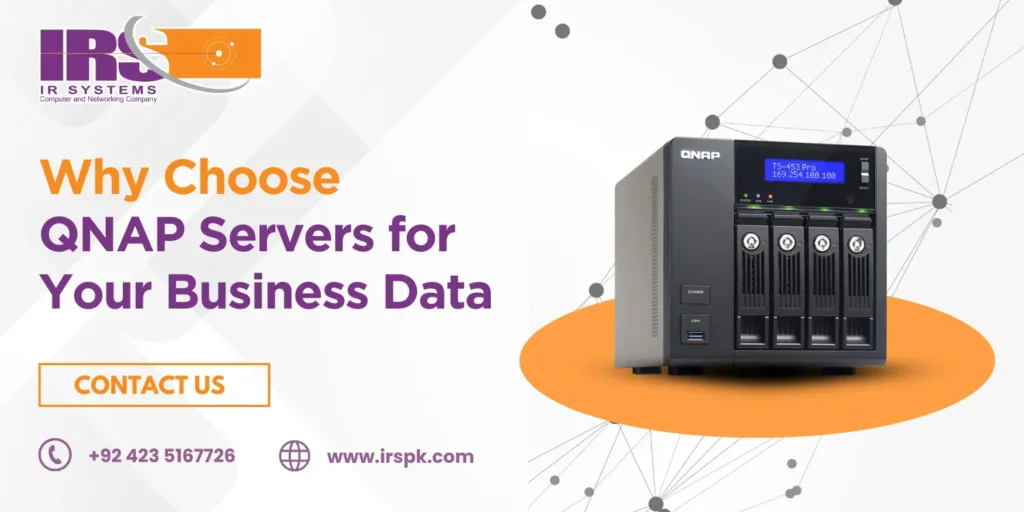
In today’s digital-first business world, data is the backbone of every organization. Whether you’re running a startup, an SMB, or a large-scale enterprise, how you store, secure, and access your data directly impacts your productivity and growth. This is where QNAP Network Attached Storage (NAS) steps in as a reliable solution, offering businesses not just storage but also advanced data protection, scalability, and efficiency. If you’re in Pakistan and considering the right choice for your business data, working with the top QNAP distributor in Pakistan ensures that you get genuine solutions tailored to your needs. At IR Systems, we specialize in providing QNAP servers, NAS devices, and enterprise storage solutions that empower businesses to handle their data smartly and securely. Understanding QNAP Network Attached Storage (NAS) Before diving deeper, let’s understand what makes QNAP NAS so valuable for businesses. Unlike traditional storage devices, a QNAP Network Attached Storage system is designed as a centralized hub for data management. It allows multiple users and devices to access, share, and store data seamlessly while providing advanced features like: High-performance storage and file sharing Secure backup and disaster recovery Cloud integration for hybrid workflows Virtualization and container solutions Scalability to meet growing business needs Simply put, QNAP servers in Pakistan are not just storage devices; they’re data management powerhouses. Why Businesses in Pakistan Trust QNAP Servers Businesses in Pakistan trust QNAP servers for their unmatched reliability, data protection, and scalable storage solutions: 1. Centralized Data Management Managing multiple storage devices can be chaotic. With QNAP servers, your data is consolidated in one place, making it easier to organize, access, and monitor. Teams can collaborate more effectively, whether they are in the office or working remotely. 2. Unmatched Data Protection Cybersecurity threats and accidental data loss are top concerns for businesses today. QNAP Network Attached Storage ensures enterprise-grade security with features like snapshots, encryption, and advanced backup solutions. This makes QNAP the ideal backup storage device for business. 3. Scalability for Growing Needs As your business expands, so does your data. Models like TS475 and TS875 are built to scale, ensuring you never run out of storage capacity. You can add drives or upgrade to more advanced systems like the TX432PX or TX432PXU-RP without disrupting your workflow. 4. Cost-Effective Efficiency Compared to traditional data centers, QNAP servers in Pakistan offer a cost-effective way to store and manage data. With IR Systems as your QNAP distributor in Pakistan, you get genuine products and long-term value for your investment. 5. Cloud Integration Hybrid work is now a norm. QNAP integrates seamlessly with popular cloud platforms, allowing businesses to balance on-premise storage with cloud accessibility. This provides flexibility, resilience, and greater productivity. Popular QNAP Models for Businesses At IR Systems, we help businesses choose the right QNAP NAS model according to their needs. Here are some top-performing models that are in high demand: QNAP TS475 The TS475 is a powerful and compact NAS solution designed for SMBs. It offers excellent performance, supports virtualization, and ensures secure backup. If you’re looking for a balance between affordability and capability, this model is a great choice. QNAP TS875 For enterprises handling heavy workloads, the TS875 delivers high-speed processing, multiple drive bays, and reliable performance. It’s ideal for companies that require consistent uptime and large-scale data storage. QNAP TX432PX Built with modern enterprises in mind, the TX432PX is designed for high-speed data transfer and scalability. Its advanced hardware makes it suitable for demanding business applications like virtualization and real-time backups. QNAP TX432PXU-RP This rackmount solution combines performance with redundancy. With dual power supplies and robust storage capacity, the TX432PXU-RP ensures business continuity and high availability, making it a top pick for data-driven organizations. QNAP as a Backup Storage Device for Business Every business, regardless of size, needs a reliable backup strategy. QNAP servers make it simple to protect your data by providing: Automated Backups: Schedule regular backups to ensure data is always secure. Disaster Recovery: In case of hardware failure or cyberattacks, you can quickly restore data. Cross-Platform Support: Backup from Windows, Mac, Linux, and even virtual environments. Hybrid Backup: Combine on-premise and cloud backup for maximum safety. By investing in QNAP Network Attached Storage in Pakistan, businesses can prevent costly downtime and safeguard sensitive information. Why Work with IR Systems – The Top QNAP Distributor in Pakistan Choosing the right vendor is just as important as choosing the right storage solution. As the top QNAP distributor in Pakistan, IR Systems provides: Genuine QNAP products with full warranty support Expert consultation to match the right model (TS475, TS875, TX432PX, TX432PXU-RP) with your business needs Local support and services, ensuring fast deployment and troubleshooting Competitive pricing for maximum value Trusted reputation as a leading provider of enterprise IT solutions in Pakistan By working with us, you ensure your business gets not just a product but a complete data management solution. Key Benefits of Choosing QNAP with IR Systems Enhanced data security for businesses of all sizes Scalable infrastructure that grows with your company High performance for demanding applications Hybrid storage with cloud connectivity Local expertise and after-sales support from IR Systems Conclusion In a world where data drives decision-making, innovation, and growth, investing in the right storage solution is non-negotiable. QNAP Network Attached Storage offers businesses in Pakistan the ideal balance of performance, security, and scalability. From models like TS475 and TS875 to enterprise-grade solutions like TX432PX and TX432PXU-RP, QNAP provides the reliability you need to secure and manage your business data. As the top QNAP distributor in Pakistan, IR Systems is here to guide you every step of the way – from choosing the right model to ensuring seamless deployment and long-term support. Ready to secure your business data with QNAP servers? Contact IR Systems today and let’s build a smarter, safer, and more efficient data management strategy for your business.
Navigating the Digital Universe
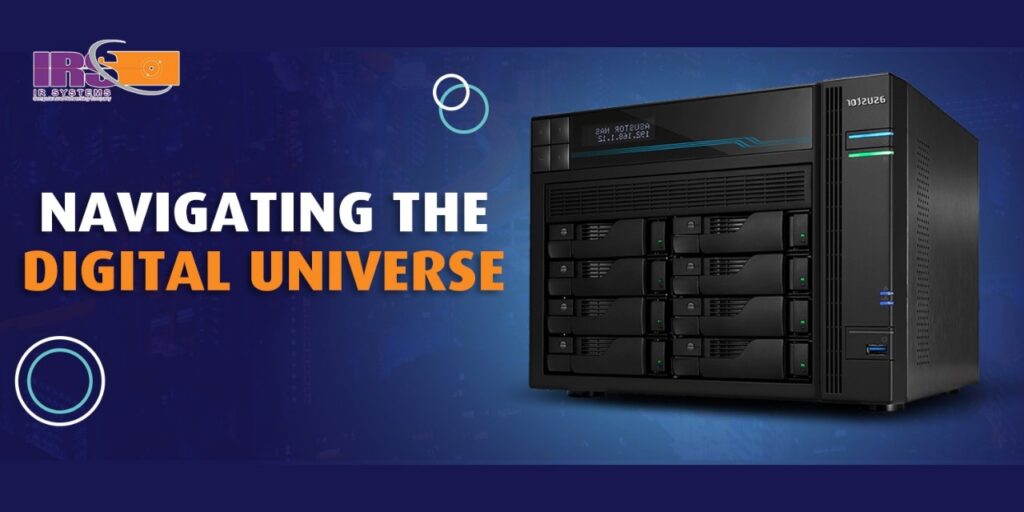
In the vast expanse of the digital universe, where information sprawls across countless websites, databases, and archives, finding what we need can feel like searching for a needle in a haystack. This is where Information Retrieval (IR) systems come into play, empowering us to sift through this digital haystack efficiently and effectively. At the heart of this technological marvel lies IRSPK, a potent tool that revolutionizes the way we access and harness information. Understanding Information Retrieval (IR) Before diving into the intricacies of IRSPK, let’s explore the foundation upon which it stands: Information Retrieval (IR). IR is the process of obtaining information from a vast collection of data, often with the assistance of computer systems. It involves searching, filtering, and retrieving relevant information based on user queries or requirements. In essence, IR enables us to transform raw data into meaningful insights, fueling innovation, decision-making, and discovery across various domains. Unveiling the Power of IRSPK IRSPK, or Intelligent Retrieval System Powered by Keywords, represents the cutting-edge evolution of traditional IR systems. By harnessing the power of advanced algorithms, machine learning, and natural language processing, IRSPK goes beyond keyword matching to deliver more nuanced and contextually relevant results. Let’s delve into how IRSPK enhances the information retrieval experience: Precision and Accuracy: Our system is engineered to understand not only the explicit keywords in a query but also the underlying intent behind them. Through semantic analysis and entity recognition, it discerns the context of the search, ensuring that the retrieved results closely align with the user’s requirements. Personalization: Recognizing that each user is unique, this system leverages user preferences, browsing history, and behavior patterns to tailor search results accordingly. By personalizing the retrieval process, we deliver a curated experience that resonates with individual users, fostering greater engagement and satisfaction. Multimodal Search: In today’s multimedia-rich landscape, information exists in various formats, including text, images, audio, and video. Our system is equipped with multimodal search capabilities, enabling users to explore diverse content types seamlessly. Whether it’s a scholarly article, a captivating image, or an insightful podcast, IRSPK ensures no stone is left unturned in the quest for information. Challenges and Innovations While IRSPK represents a leap forward in information retrieval technology, it’s not without its challenges. The ever-expanding volume of data, the nuances of human language, and the dynamic nature of user intent pose ongoing hurdles. However, we’re committed to addressing these challenges through continuous innovation and refinement. Big Data Handling: With the exponential growth of digital data, scalability is paramount. This system employs distributed computing frameworks and parallel processing techniques to handle vast datasets efficiently, ensuring rapid retrieval without compromising performance. Natural Language Understanding: Understanding the subtleties of human language is central to effective information retrieval. Through advanced natural language understanding models, our system interprets user queries with remarkable accuracy, accounting for synonyms, context shifts, and linguistic nuances. Conclusion: Empowering Discovery and Insight In the age of information abundance, the ability to navigate and extract value from vast datasets is more critical than ever. IRSPK stands at the forefront of this endeavor, revolutionizing the way we access, analyze, and leverage information. With its precision, personalization, and multimodal capabilities, IRSPK empowers us to unlock new realms of discovery, insight, and innovation. As we continue to push the boundaries of IR technology, we’re excited to embark on this journey of exploration and enlightenment together.
Exploring the Fusion of Asustor and Machine Learning
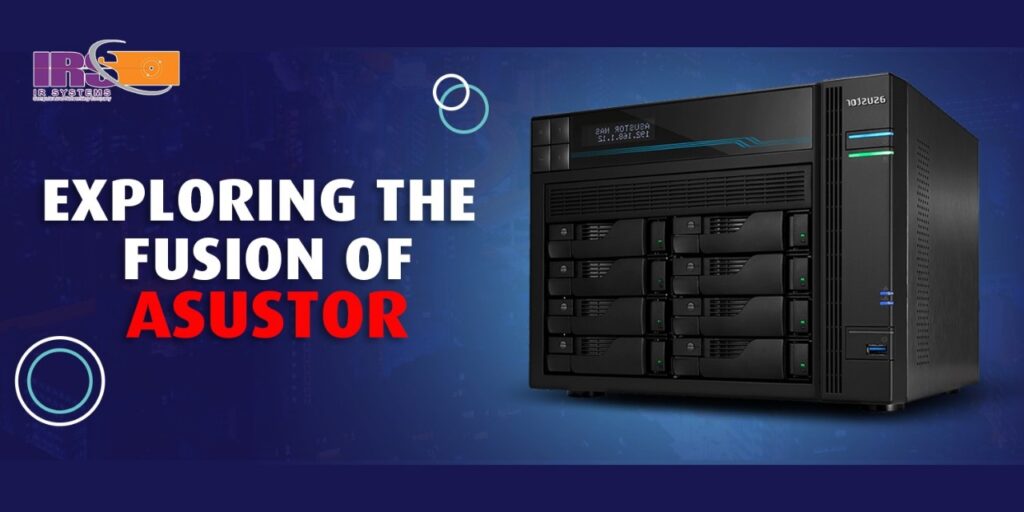
In the realm of Information Retrieval (IR) systems, innovation is the cornerstone of progress. At our core, we are constantly seeking ways to enhance user experiences and streamline processes. Today, we delve into the synergy between Asustor, a leading provider of network-attached storage (NAS) solutions, and the transformative power of Machine Learning (ML) in IR systems. Understanding Asustor: Redefining Storage Solutions At the heart of our operations lies Asustor, renowned for its cutting-edge NAS devices. These devices serve as the backbone of data management, offering reliability, scalability, and versatility to users across diverse domains. With features tailored to both personal and enterprise needs, Asustor NAS systems have become synonymous with efficiency and performance. Harnessing the Potential of Machine Learning In our pursuit of excellence, we recognize the pivotal role of Machine Learning in revolutionizing IR systems. Machine Learning algorithms, fueled by data-driven insights, possess the capability to optimize search functionalities, enhance recommendation systems, and automate processes with unparalleled precision. Uniting Asustor and Machine Learning: A Synergistic Approach Enhanced Search Capabilities By integrating Machine Learning algorithms into Asustor NAS systems, we empower users with intuitive search capabilities. Leveraging ML models, our Machine Learning for IR systems can analyze user behavior, interpret search queries, and deliver highly relevant results in real-time. This not only streamlines the search process but also elevates user satisfaction to new heights. Intelligent Content Recommendations Our collaboration with Machine Learning for IR extends beyond search functionality to personalized content recommendations. Through continuous analysis of user interactions and content preferences, our IR systems can intelligently suggest relevant files, documents, or media, tailored to individual preferences. This proactive approach not only simplifies content discovery but also fosters engagement and productivity. Automated Data Organization Gone are the days of manual data organization. With Asustor NAS systems powered by Machine Learning, data categorization, and tagging are automated processes. ML algorithms analyze file content, extract key metadata, and categorize data into logical hierarchies, ensuring seamless navigation and accessibility. This not only saves time and effort but also minimizes the risk of data mismanagement. Conclusion: Future Prospects and Beyond Asustor’s collaboration with Machine Learning represents just the beginning of a transformative journey in IR systems. As technology continues to evolve, we remain committed to pushing boundaries, exploring new possibilities, and redefining the landscape of data management. With innovation as our compass and user satisfaction as our guiding principle, the future holds endless opportunities for growth and advancement. The fusion of Asustor and Machine Learning heralds a new era in IR systems, marked by unparalleled efficiency, intelligence, and user-centricity. Together, we embark on a journey of innovation, driven by a shared vision of empowering users and transforming the way we interact with data. Join us as we pave the way for a brighter, smarter future in information retrieval.
Navigating the World of Information Retrieval Systems: Unveiling the Power of Storage Devices
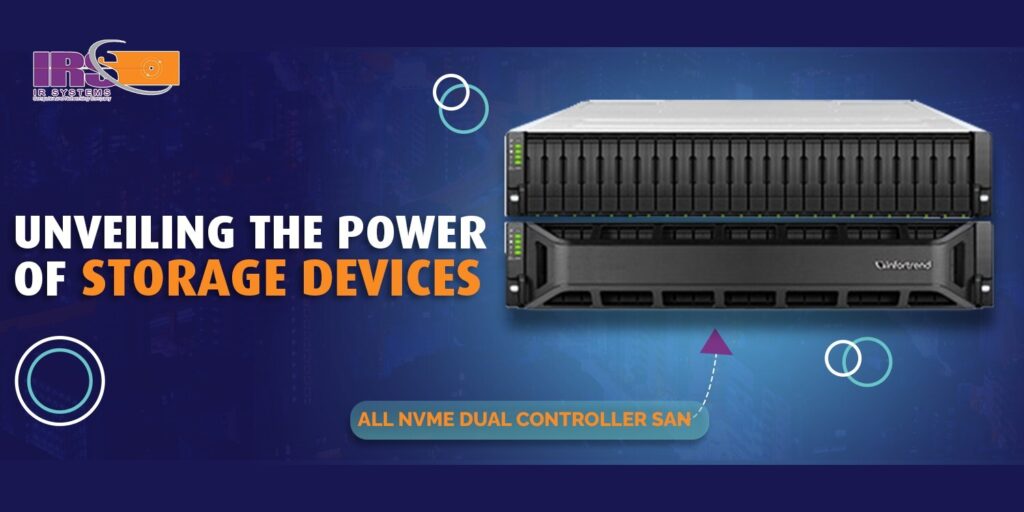
In the digital age, the ability to access and retrieve information swiftly and accurately is paramount. Information Retrieval (IR) systems serve as the backbone of modern data management, facilitating the organization, indexing, and retrieval of vast amounts of data. Central to the effectiveness of IR systems are storage devices, which play a crucial role in storing and accessing data efficiently. Let’s delve into the intricate world of IR systems and explore how these devices are shaping the landscape of information retrieval. Understanding Information Retrieval Systems At its core, an Information Retrieval (IR) system is a software-based solution designed to store, index, and retrieve information from large repositories of data. From search engines indexing the vast expanse of the internet to enterprise databases organizing corporate information, IR systems are omnipresent in our digital ecosystem. Components of an IR System: Storage Devices: Storage devices serve as the foundation of an IR system, providing the infrastructure for storing and accessing data. Indexing Mechanism: IR systems employ sophisticated indexing algorithms to organize data into searchable structures, facilitating quick retrieval based on relevance. Query Processing: When a user submits a query, the IR system processes the request, matches it against the indexed data, and retrieves relevant results. Ranking Algorithms: To enhance search accuracy, IR systems utilize ranking algorithms that prioritize results based on factors such as relevance, popularity, and user preferences. The Role of Storage Devices in IR Systems These devices are instrumental in the functionality and performance of IR systems, serving as the primary means of storing and accessing data. The choice of storage device significantly impacts the speed, reliability, and scalability of an IR system, thereby influencing its effectiveness in meeting user requirements. Types of Storage Devices: Hard Disk Drives (HDDs): Traditional HDDs consist of spinning magnetic disks and read/write heads, offering ample storage capacity at a relatively low cost. However, HDDs are susceptible to mechanical failures and have slower read/write speeds compared to other storage technologies. Solid-State Drives (SSDs): SSDs utilize flash memory to store data, offering significantly faster read/write speeds and lower latency compared to HDDs. SSDs are more durable and energy-efficient, making them ideal for high-performance IR systems. Hybrid Storage Solutions: Hybrid storage solutions combine the benefits of HDDs and SSDs, leveraging the high capacity of HDDs for bulk storage and the speed of SSDs for frequently accessed data. This hybrid approach optimizes cost-effectiveness and performance in IR systems. Advantages of Storage Devices in IR Systems The choice of the storage device in an IR system can have profound implications for its functionality and efficiency. Here are some key advantages of storage devices in IR systems: Speed and Performance: SSDs offer significantly faster read/write speeds and lower latency compared to HDDs, resulting in quicker data access and retrieval. This translates into improved responsiveness and user satisfaction in IR systems. Reliability and Durability: Solid-state devices, such as SSDs, are inherently more reliable and durable than traditional HDDs. With no moving parts, SSDs are less susceptible to mechanical failures, ensuring consistent performance and data integrity in IR systems. Scalability and Flexibility: Storage devices with scalable architectures enable IR systems to accommodate growing data volumes and user demands. Whether it’s adding more SSDs for increased performance or expanding HDD capacity for bulk storage, scalable storage solutions provide flexibility and agility in managing data infrastructure. Challenges and Considerations While these devices offer numerous advantages in IR systems, they also present challenges and considerations that organizations must address: Cost: SSDs, with their superior performance and reliability, often come at a higher cost compared to HDDs. Organizations must carefully evaluate their budgetary constraints and performance requirements when selecting these devices for IR systems. Data Security: Ensuring data security and protection is paramount in IR systems, particularly when dealing with sensitive or confidential information. Organizations must implement robust security measures, such as encryption and access controls, to safeguard data stored on storage devices. Maintenance and Monitoring: Regular maintenance and monitoring are essential for optimizing the performance and longevity of these devices in IR systems. Organizations should implement proactive monitoring tools and protocols to detect and address potential issues before they escalate. The Future of Storage Devices in IR Systems As technology continues to evolve, the future of storage devices in IR systems holds immense promise. Emerging innovations such as non-volatile memory express (NVMe) storage, storage-class memory (SCM), and shingled magnetic recording (SMR) are poised to further enhance the speed, reliability, and scalability of these devices, driving advancements in information retrieval and data management. Harnessing the Power of Storage Devices in IR Systems In the dynamic landscape of information retrieval, storage devices play a pivotal role in shaping the efficiency, performance, and scalability of IR systems. From traditional HDDs to cutting-edge SSDs and hybrid storage solutions, the choice of storage device can significantly impact the effectiveness of an IR system in meeting user requirements and organizational objectives. By understanding the advantages, challenges, and considerations associated with these devices, organizations can make informed decisions to optimize their IR infrastructure and unlock the full potential of their data assets.
Unlocking Efficiency: The Role of SSD Drives
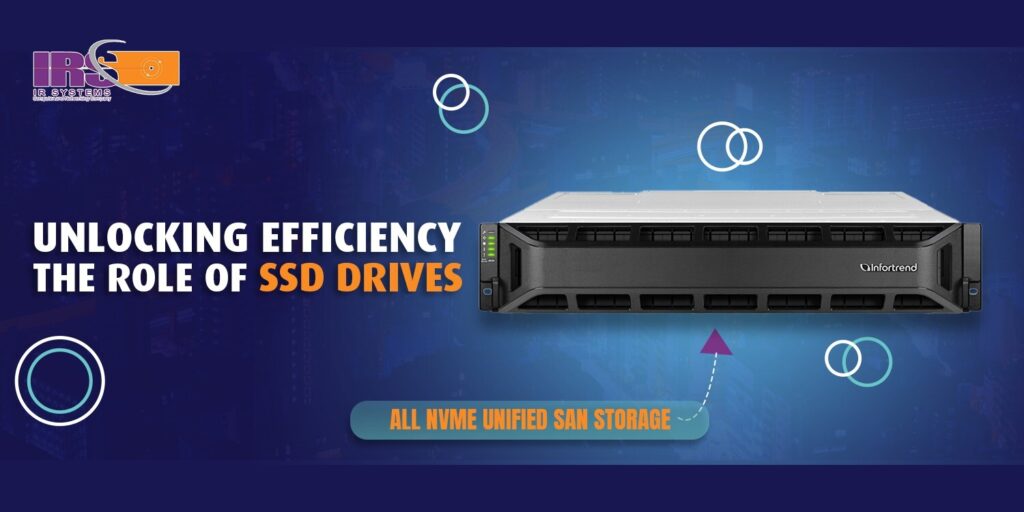
In the realm of Information Retrieval (IR) systems, efficiency is paramount. As the digital landscape evolves, the need for faster, more responsive systems becomes increasingly critical. One key component revolutionizing IR systems is the utilization of Solid State Drives. Let’s delve into how SSD Drives are transforming IR systems across various sectors. Enhancing Speed and Performance These solid state Drives offer a remarkable leap in speed and performance compared to traditional Hard Disk Drives (HDDs). With no moving parts, SSDs significantly reduce latency, resulting in faster data retrieval and processing. In IR systems, where rapid access to vast amounts of information is crucial, this enhanced speed translates into quicker query responses and improved overall system performance. Optimizing Indexing Processes Indexing lies at the heart of IR systems, enabling efficient data retrieval based on user queries. These Drives play a pivotal role in optimizing indexing processes by facilitating swift data indexing and updating. The high read and write speeds of SSDs enable faster indexing of new data and modifications to existing indices, ensuring that IR systems maintain responsiveness even as data volumes grow. Enabling Real-Time Analytics Real-time analytics empower organizations to extract actionable insights from streaming data with minimal delay. SSD Drives enable IR systems to keep pace with the demands of real-time analytics by delivering rapid data access and processing capabilities. Whether it’s monitoring social media trends, analyzing financial market data, or tracking sensor readings, SSD-equipped IR systems can deliver timely insights critical for informed decision-making. Enhancing Scalability and Flexibility Scalability is a key consideration for IR systems, especially in dynamic environments where data volumes fluctuate unpredictably. These Drives offer superior scalability compared to HDDs, allowing IR systems to adapt seamlessly to changing data requirements. Additionally, the compact form factor of SSDs enables greater flexibility in system design, making them ideal for deployments where space is limited or where mobility is a factor. Improving Reliability and Durability Reliability is paramount in IR systems, where downtime or data loss can have significant consequences. These Drives exhibit greater reliability and durability than HDDs due to their lack of moving parts. This inherent resilience to mechanical failure makes SSD-equipped IR systems more robust and less prone to data loss, ensuring continuous operation even in demanding environments. Reducing Energy Consumption Energy efficiency is an increasingly important consideration in modern computing infrastructure. These Drives consume less power than their HDD counterparts, making them an environmentally friendly choice for IR systems. By reducing energy consumption, SSDs not only lower operational costs but also contribute to sustainability efforts, aligning with the growing emphasis on eco-friendly technology solutions. Empowering AI-Powered IR Systems Artificial Intelligence (AI) plays a pivotal role in modern IR systems, enabling advanced capabilities such as natural language processing, image recognition, and personalized recommendations. SSD Drives serve as the backbone of AI-powered IR systems, providing the speed and agility required to support computationally intensive tasks. Whether it’s training machine learning models or executing complex algorithms, SSDs ensure that AI-driven IR systems deliver optimal performance. In conclusion, SSD Drives are revolutionizing Information Retrieval systems across industries by delivering unparalleled speed, performance, and reliability. From enhancing indexing processes to enabling real-time analytics and empowering AI-driven insights, SSD-equipped IR systems are at the forefront of efficiency and innovation. As the digital landscape continues to evolve, the role of SSDs in IR systems will only become more indispensable, driving advancements and unlocking new possibilities in information retrieval and analysis.
